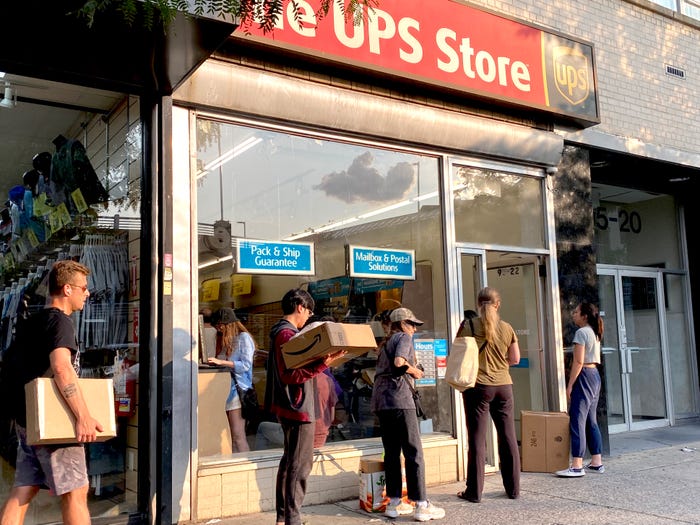
UPDATE: U.S. consumers are feeling the immediate impact of new tariffs as shipping chaos at UPS escalates. Customers are reporting unexpected fees and delayed shipments, creating an urgent situation for international orders.
Rich DeThomas, a resident of Huntsville, Alabama, ordered a dozen bottles of red wine from Italy in late August. His shipment never arrived. UPS, citing recent tariff changes, requested more details before ultimately refusing delivery. After receiving a replacement shipment, DeThomas was hit with a $13 bill for “abandoning” the original order. “What the hell? What’s going on?” he exclaimed in frustration.
This confusion stems from President Donald Trump’s April announcement regarding sweeping tariffs, which have complicated international shipping. The situation worsened after the administration ended the de minimis loophole in August, eliminating tariff-free allowances on shipments valued under $800. Consumers are now forced to navigate complex tariff regulations while waiting for their purchases.
UPS has reportedly left countless packages sitting in warehouses for days or even weeks. Some customers have been told their shipments may be disposed of due to customs issues. “Personal wine imports ORDERED ONLINE are NOT permitted,” a UPS customs broker stated in an email to DeThomas.
Katie Golden, who resells clothing on Depop, expected to pay some tariffs on her $179 order from the UK. However, she was shocked when UPS sent her a bill totaling $769, including a $54 brokerage fee. “It shouldn’t be this hard to order a package,” she said, expressing her frustration over the mounting costs.
The confusion surrounding tariffs has left many consumers feeling like amateur customs brokers. As shipments are delayed and unexpected fees arise, customers are grappling with the complexities of tariff classifications. Tom Strohl, president of consulting firm Oliver Wight Americas, advised that companies shipping to the U.S. should factor in tariffs to their prices to avoid alienating customers.
As businesses prepare for the upcoming holiday shipping season, concerns are rising. Kunal Sharma, who runs two businesses in Ontario, Canada, selling luxury car parts, shared that he’s already seen UPS lose or return shipments since the de minimis loophole ended. “I can’t even imagine how bad it’ll get on Black Friday,” he said.
The consequences of these tariffs extend beyond shipping issues. Economists warn that they could lead to rising prices and impact employment rates. Federal Reserve Chair Jerome Powell noted that tariffs have affected the central bank’s ability to lower interest rates sooner.
George Hayes from North Carolina, who imports figurines from Japan, is reconsidering his ordering habits. He faced $700 in tariffs on his last shipment and now finds himself needing to verify product origins to determine applicable tariffs. “I wish we could have that again,” he lamented, reflecting on the previous system that allowed for simpler transactions.
Consumers are left in a state of uncertainty as they navigate the new tariff landscape. With the holiday season approaching, many are anxious about future purchases and the costs associated with them.
For those affected by these tariff issues or UPS shipping problems, sharing your story could provide insight into the broader impact on American consumers. Contact this reporter at [email protected] or 808-854-4501 for further discussion.







